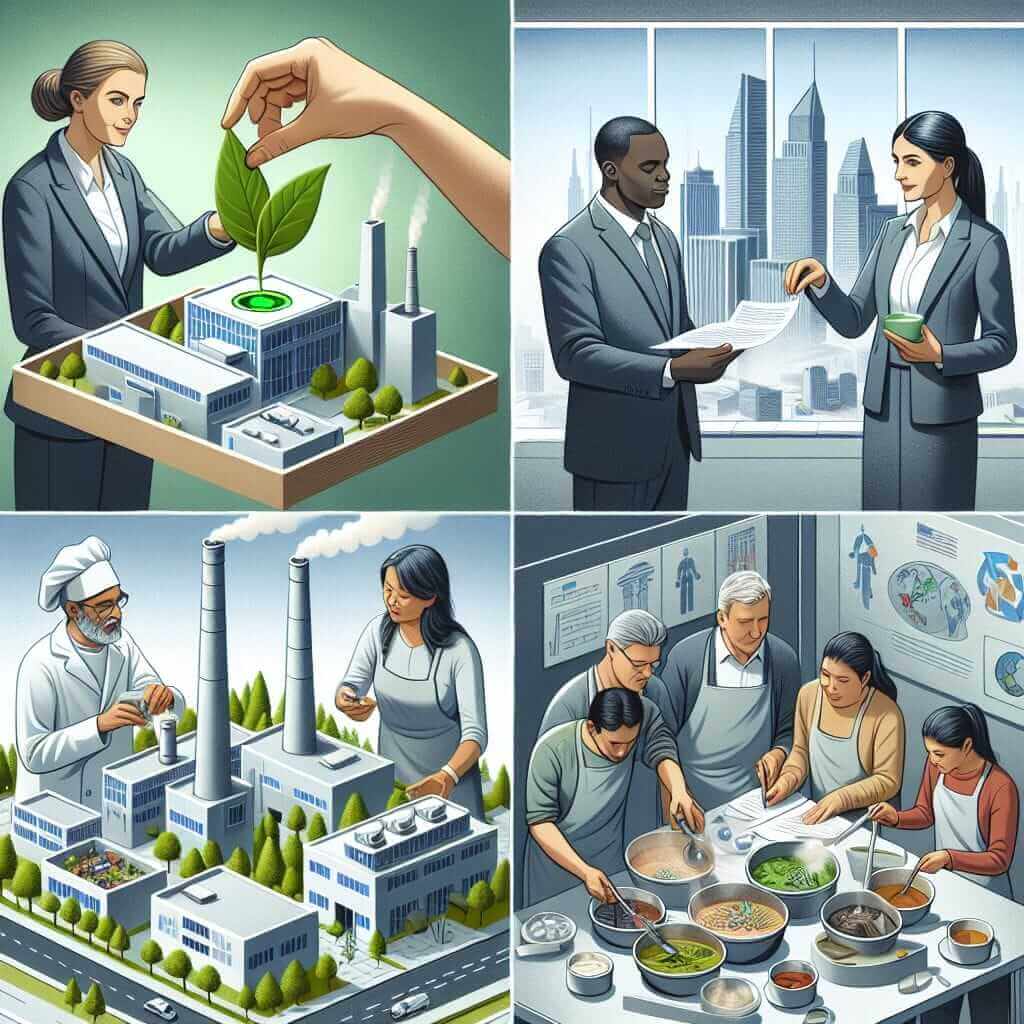The IELTS Writing Task 2 often presents essay prompts concerning contemporary global issues, and “the role of corporate innovation in solving global challenges” is a recurring theme. This topic delves into the responsibility of businesses to contribute to a better world and examines how their innovative practices can address pressing global problems.
Nội dung bài viết
Here are some potential IELTS Writing Task 2 questions related to this topic:
- To what extent do you agree or disagree that corporate innovation is the key to solving global challenges such as climate change and poverty?
- Some people argue that corporations, driven by profit, cannot be relied upon to solve global problems. Others believe that they are the only ones with the resources and capacity to do so. Discuss both views and give your opinion.
- What are the potential benefits and drawbacks of relying on corporate innovation to address global issues?
Sample Essay: Corporate Innovation and Global Challenges
Let’s select the first question from the list above to develop a sample essay:
To what extent do you agree or disagree that corporate innovation is the key to solving global challenges such as climate change and poverty?
Essay Analysis
This essay prompt requires you to present a clear stance on the role of corporate innovation in tackling major global problems. You need to analyze both sides of the argument – the potential of corporate innovation and its limitations – before reaching a conclusion.
Model Essay
In an era marked by unprecedented global challenges, the role of corporate innovation in forging a sustainable and equitable future is a subject of intense debate. While some argue that it holds the key to overcoming issues like climate change and poverty, others remain skeptical of its efficacy. This essay will contend that although corporate innovation is a crucial element in addressing these challenges, it cannot be solely relied upon as the ultimate solution.
Proponents of corporate innovation highlight its potential to revolutionize industries and create impactful solutions. Businesses, with their vast resources, technological prowess, and capacity for large-scale implementation, are uniquely positioned to develop and disseminate innovations that can mitigate climate change. For instance, investments in renewable energy technologies, sustainable agriculture practices, and carbon capture mechanisms can contribute significantly to reducing greenhouse gas emissions. Similarly, corporations can play a pivotal role in poverty reduction by creating employment opportunities, fostering inclusive business models, and investing in education and healthcare initiatives in developing countries.

However, it is essential to acknowledge the limitations of relying solely on corporate innovation as the panacea for global challenges. Firstly, the profit-driven nature of corporations can often lead to a focus on short-term gains at the expense of long-term sustainability. This can result in the adoption of “greenwashing” tactics where companies engage in superficial environmental initiatives while continuing practices that are detrimental to the planet. Secondly, the unequal distribution of resources and technological advancements means that the benefits of corporate innovation might not reach marginalized communities most affected by global challenges.
In conclusion, while corporate innovation undeniably holds immense potential in addressing global challenges, it is not a silver bullet solution. A multifaceted approach that includes government regulations, international cooperation, and individual responsibility is essential to create a truly sustainable and equitable world. Corporations must prioritize ethical and sustainable practices, and governments should incentivize and regulate their involvement in tackling global issues. Only through a collaborative and holistic approach can we effectively address the complex challenges facing humanity.
Word count: 298 words
Writing Tips
- Structure: Follow a clear structure with an introduction, body paragraphs presenting both sides of the argument, and a balanced conclusion.
- Vocabulary: Use topic-specific vocabulary related to innovation, sustainability, and global challenges.
- Examples: Provide relevant and concrete examples to illustrate your points.
- Critical Analysis: Demonstrate critical thinking by analyzing both the benefits and limitations of corporate innovation.
- Grammar and Cohesion: Use a variety of grammatical structures and linking words to ensure coherence and cohesion in your writing.
Difficult Vocabulary
- Sustainable (adjective) /səˈsteɪ.nə.bəl/: Able to be maintained at a certain rate or level.
- Equitable (adjective) /ˈek.wɪ.tə.bəl/: Fair and impartial.
- Mitigate (verb) /ˈmɪt.ɪ.ɡeɪt/: Make something less severe, serious, or painful.
- Disseminate (verb) /dɪˈsem.ɪ.neɪt/: Spread something, especially information, widely.
- Inclusive (adjective) /ɪnˈkluː.sɪv/: Including everyone or everything.
- Panacea (noun) /ˌpæn.əˈsiː.ə/: A solution or remedy for all difficulties or diseases.
- Greenwashing (noun) /ˈɡriːn.wɑːʃ.ɪŋ/: Disinformation disseminated by an organization so as to present an environmentally responsible public image.
- Marginalized (adjective) /ˈmɑːr.dʒɪ.nə.laɪzd/: Treated as insignificant or peripheral.
- Holistic (adjective) /hoʊˈlɪs.tɪk/: Characterized by the treatment of the whole person or thing, taking into account mental and social factors, rather than just the physical symptoms of a disease.
Conclusion
This guide has explored the significant topic of corporate innovation in the context of global challenges. By analyzing a sample essay question, providing a model response, and highlighting key vocabulary and writing tips, this resource aims to equip you with the tools to confidently approach this theme in your IELTS Writing Task 2. Remember to practice writing essays on similar topics to enhance your skills and refine your approach to crafting well-structured and articulate responses.